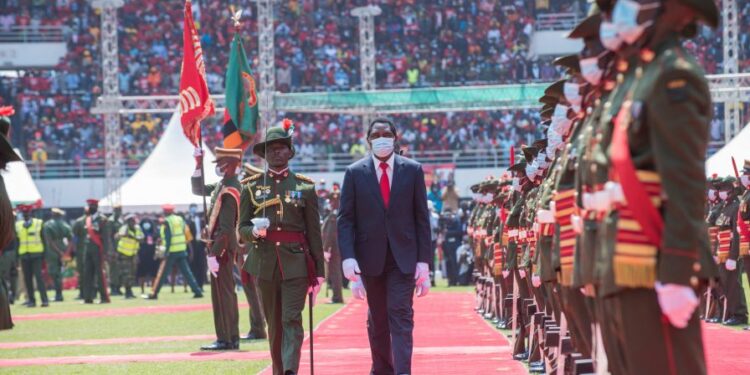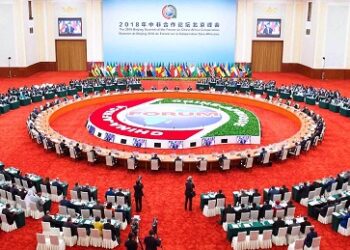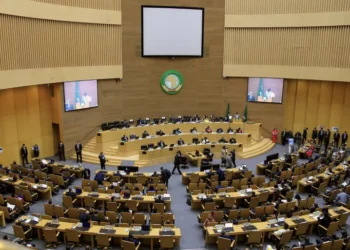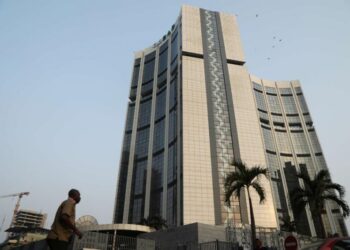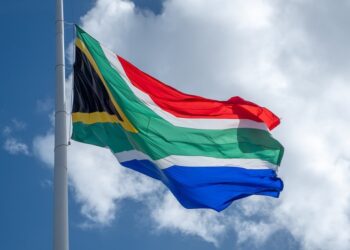By Sishuwa Sishuwa*
On 4 September 2023, Zambia’s President Hakainde Hichilema denounced alleged coup plotters who he claimed were planning to undermine the country’s democratic rule and stability by illegally seizing power. Coming after a string of military coups in West and Central African countries, his comments have attracted widespread attention across the continent and beyond.
Hichilema’s warning against those considering a coup was first issued at a rally in Kanyama, a densely populated settlement in the capital Lusaka. Any suggestion it was an off-the-cuff remark was eliminated when he restated the remarks in a carefully written Facebook post later that evening.
He wrote: “To colleagues that think we are timid by being kind and that they can break the laws and entertain thoughts of illegal takeover of government including undemocratic coup d’état, our only word is that ‘We are coming for you, and we will not allow you to make Zambians start running around as is the case in some places’.”
Hichilema’s talk of a coup plot caught many by surprise. Zambia has no history of military rule or interference in political processes, and the last (failed) coup attempt occurred 26 years ago. Furthermore, the country’s political elite has a well-established commitment to democratic politics, informed in part by a track record of elections that result in peaceful transfers of power.
Given this background, it is easy to understand why some individuals and organisations have since condemned Hichilema’s remarks as irresponsible. This condemnation is necessary, but not sufficient. Zambians also need to understand why Hichilema is making such comments.
Contrary to what some of his political opponents have argued, the president’s threats were neither random nor a result of careless talk. They are deliberate and demonstrate how Hichilema is slowly becoming adept at undermining democratic institutions in a committed, strategic, and well-defined manner. If Zambians wish to avert the increasing restrictions on political and civil rights, they will do well not to underestimate the lengths to which he is prepared to go in his bid for re-election.
Outside Hichilema’s head, there is no coup plot in Zambia. The talk about people scheming to overthrow him and his vow to punish those responsible should be seen as part of his wider political strategy to undermine opposition forces and stay in power beyond 2026.
Warning soldiers
Hichilema’s coup remarks were directed at different audiences for different objectives.
The first was the military whom he was warning not to depose him. Here, understanding of the wider context is useful: the recent coups elsewhere on the continent have occurred against presidents labelled by their opponents as puppets of France. In Zambia, Hichilema has faced growing criticism that he is a puppet Western powers too, but in his case of the US, UK, and EU. His administration’s policies in mining, energy, security, and foreign affairs have pushed the perception that he favours Western interests – a reversal of the position of his predecessor Edgar Lungu, who pivoted towards China and Russia.
The characterisation of Hichilema as a Western puppet was amplified by the toxic fallout from the August election in neighbouring Zimbabwe, which saw the re-election of President Emmerson Mnangagwa of the ruling ZANU-PF.
In the aftermath of that disputed poll, election observers from the southern bloc SADC criticised the process as having been deeply flawed, a verdict shared by most other international observers. Lashing out, senior figures in ZANU-PF dismissed the report by the SADC mission, whose head was controversially appointed by Hichilema as the current chair of the bloc. Zimbabwean leaders also went further in accusing the Zambian president of trying to influence the election by providing financial support to the opposition Citizens Coalition for Change (CCC).
Hichilema, said ZANU-PF spokesperson Christopher Mutsvangwa, “wants to become part of the charade of Western countries that always see Zimbabwean elections as a transition from ZANU-PF rule to some puppetry”. Mutsvangwa continued by saying that the West wants to see the back of national liberation movements in South Africa and Namibia too. “I do not know if Hichilema wants to become the new champion of Western neo-colonial interests in southern Africa,” he added. This message even found support from some within South Africa’s governing African National Congress (ANC), whose Secretary-General declared the outcome of Zimbabwe’s election “a victory over imperialist puppets.”
In warning that he would crush unspecified coup plotters, the Zambian president was attempting to make it look like there are elements in the military who may seek to emulate their colleagues in West and Central Africa. Behind this paranoia is also the knowledge that the government has failed to tackle the rising cost of living. The removal of most subsidies – at the instigation of the IMF – and falling value of the unstable kwacha have increased import costs and pushed up the price of fuel and corn meal, the country’s staple, by over 100% since August 2021.
The worst-affected are the urban poor on the Copperbelt and in Lusaka, where the president was booed and accosted with chants of “hunger” a day or two before he issued the coup speech. Although State House tried to play down these incidents as part of democratic expression, they demonstrate the changing public tide against Hichilema in urban areas.
Previous coup attempts – both in the era of one-party rule and multiparty democracy – have all taken place during periods of steep increases in the cost of living. Though unsuccessful, most were celebrated by urbanites on the Copperbelt and in Lusaka. While Zambia’s military has usually intervened in support of democracy, Hichilema is concerned by the precedent. It is probably one that fed his fears that overzealous soldiers may seek to seize power, as their colleagues attempted to do against founding president Kenneth Kaunda in June 1990, and Frederick Chiluba in October 1997.
Preparing Western allies
The second audience Hichilema was speaking to are Western governments, who he was effectively preparing for a further crackdown on opposition leaders ahead of the 2026 election. His comments implicate his opponents in an imaginary coup threat, opening the door for them being arrested on bogus but non-bailable charges like treason.
There is a well-established history of trumped-up charges being used against the political opposition in Zambia. For instance, in March 1993, President Chiluba accused the then main opposition of planning to illegally overthrow the government with foreign support. While no real evidence of the so-called “Zero Option Plan” was provided, officials detained 26 people on charges of treason and the president declared a state of emergency. More recently, in April 2017, Hichilema was himself detained on treason charges for four months after his convoy failed to give way to President Lungu’s motorcade, an act that was characterised as “likely to cause death or grievous harm to the President of the Republic of Zambia, in order to usurp the executive power of the state”.
In these two cases, the then incumbents’ motivations were the same: a sense of political insecurity and a desire to demonstrate control of national security forces.
One reason why Hichilema is currently feeling vulnerable is the growing perception in Zambia that he appears to be serving two interests – his own (mainly business) and those of external powers – rather than those of the population. Were opposition parties to field a common and credible candidate against him in 2026, they would be likely to win. Worried about this prospect, Hichilema, elected only two years ago, has launched a pilot clampdown on his opponents.
Over the last 30 days alone, three opposition leaders – Edith Nawakwi of the Forum for Democracy and Development, Sean Tembo of the Patriots for Economic Progress, and Fred M’membe of the Socialist Party (SP) – have all separately been arrested.
For M’membe, this was his third arrest this year alone. Following charges of “unlawful discharge of a firearm”, “libel”, and “acts intended to cause grievous bodily harm”, the government appears keen to bring a more serious charge against him such as treason. On 8 August 2023, Inspector General of Police Graphel Musamba held a press conference in which he declared that socialism will not succeed in Zambia and vowed to crush the Socialist Party, accusing it of “panting for violence because they want to cut corners to reach their destiny”. Musamba further claimed that M’membe, who has seemingly cultivated close political ties with Moscow and Beijing, had used social media to comment on “the emerging juntas in West Africa… thinking that the same [can] be extended to this country”. He added: “We are carefully studying the ingredients of the offence, and we will let you know in due course what his fate is going to be”.
In response, the Socialist Party leader attempted to sue the police chief for criminal defamation. Pursuing such charges, however, requires the consent of the Director of Public Prosecutions (DPP), who declined M’membe’s request. This is not the first time Gilbert Phiri, Hichilema’s former lawyer, has made partisan calls that have benefited the government. The DPP has previously sanctioned the prosecution of three opposition figures, including M’membe, on charges of criminal defamation brought by government officials.
Within the last month, the police have also arrested the former first lady, Esther Lungu, for theft of motor vehicle and twice refused to allow the opposition Patriotic Front (PF) to hold public rallies due to unspecified “security concerns”. Despite condemnation of this continued suppression of rights to peaceful assembly, association, and free speech by the Law Association of Zambia, the government has intensified the violations.
On 9 September, a battalion of police officers in full riot gear dispersed an interdenominational church service on the Copperbelt to which Lungu was invited. The pastor who organised the church meeting was arrested and charged with “conduct likely to cause breach of public peace”. Police had earlier attempted to block Lungu from traveling for the religious event. Earlier, on 7 September, the government had also declined Lungu’s request to travel abroad for medical review, a clear violation of his legal entitlements as a retired former president.
At the heart of the government’s manoeuvres against Lungu are Hichilema’s fears that his predecessor harbours plans of a political comeback. Recently, the president ordered PF leaders to stop reorganising or face arrest. Overlooking its members’ right of association, he declared: “I want to send a message to the PF thugs. I can see they are regrouping now. The fact that we did not lock you up, that we did not arrest you is not that we are not capable. We are just kind people. If you start regrouping now, we will come after you in a heavy way.”
The highly-regarded retired archbishop of Lusaka, Telesphore Mpundu, condemned these threats as “primitive politics”, motivated by the desire “to completely get rid of the opposition”.
Many people see these undemocratic actions as resembling the crackdown that Hichilema and the now governing United Party for National Development (UPND) endured while in opposition in the 2010s. The major difference is that the different interest groups that previously condemned similar attacks on democracy and human rights under Lungu are now mute for a variety of reasons. Appointments to government bodies have secured the silence of erstwhile civic actors, while intellectuals, mainly from Hichilema’s ethnic Tonga group, who led the onslaught against the PF, have developed a new career: attacking those who criticise Hichilema, making excuses for and justifying his nascent authoritarian behaviour, while ignoring his transgressions.
Hichilema also feels that he has the personal support of key figures in the diplomatic community whose grovelling attitude towards him lends credibility to the charge that Western countries are prepared to ignore a leader’s attacks on democracy if that leader serves their interests. These include the UK High Commissioner Nicholas Woolley and the US ambassador Michael Gonzales, the latter of whom has – unlike his recent predecessors David Young, Daniel Foote, Eric Shultz, Mark Storella and Donald Booth – hardly shown any interest in questions of human rights and considers Hichilema “a personal friend”. Other diplomats, such as the recently arrived Swedish ambassador Johan Hallenborg, are not simply ignoring the violations but even attempting to construct an alternative reality by claiming that Hichilema, who has strategically weakened civil society, has “enhanced human rights and improved the civic space”.
Like their governments, Western diplomats have so far conveniently avoided publicly criticising their malleable partner for the abuses of his administration partly because of the fear that doing so may inadvertently strengthen his main political opponents, who ideologically lean towards Russia and China. Regional rights bodies such as Amnesty International and Human Rights Watch that previously highlighted violations with impressive commitment and efficiency now speak through absolute silence.
Democracy on a knife-edge
Emboldened by the lack of vocal outrage against his emerging authoritarian tendencies, Hichilema’s claims of an impending coup serve as a convenient pretext for consolidating what he is already doing – eroding civil liberties – and stopping Western allies and rights bodies from calling him out. Knowing that he has their support may make him feel comfortable in expanding the crackdown on opposition leaders and using the threat of what has happened to Western-backed presidents in West and Central Africa as a sufficient reason for Western governments to continue supporting him even if his actions erode democracy.
As mass hunger bites and poverty worsens due to the rising cost of living and doing business for most Zambians, will Hichilema, a man elected precisely to resolve these challenges and to advance democracy, resort to full-blown repression or authoritarian rule to sustain his hold on power? Only time will tell.
ـــــــــــــ
* Zambian writer, historian, and Senior Lecturer at Stellenbosch University in South Africa.















































